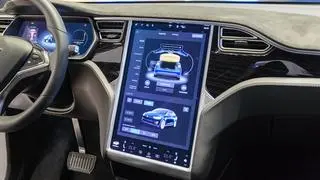No matter how desirable financial inclusion is, banks are not going to lend to small-ticket, first-time borrowers because there is no way to assess their risk profile. Microfinance companies have tried to get around this problem, with mixed success, by lending to ‘self-help groups’, where every member is individually responsible for repayment.
Now a start-up called Datacultr has come up with a solution. Its pitch is simple: First give a low-income person a loan to buy a smartphone. The smartphone then becomes a tool to “influence debt repayment” through reminders — whether calls or messages. The messaging and calling system is programmable and works even when the user is offline, out of coverage area or unwilling to take the call.
However, Datacultr’s real offering comes after the customer has bought the phone. The first loan is just the starting point of building a credit score for the customer. Once the customer begins to use the phone, one can build their “digital footprint”, says Neel Juriasingani, the co-founder and CEO of the start-up.
Datacultr has AI-driven tools to build a risk profile of the borrower, which helps the lender offer further loans. The company uses machine learning to identify potential frauds by modelling changes in the borrower’s behaviour. The combination of smartphones, behavioural science and decision models clears the way for both lending and debt collection, says Juriasingani.
The company launched the platform in Bangladesh, the birthplace of microfinance, in April 2019 and later in India in September. “We are now also live in Malaysia, with multiple pilots underway in Africa and Middle East,” Juriasingani told Quantum .








Comments
Comments have to be in English, and in full sentences. They cannot be abusive or personal. Please abide by our community guidelines for posting your comments.
We have migrated to a new commenting platform. If you are already a registered user of TheHindu Businessline and logged in, you may continue to engage with our articles. If you do not have an account please register and login to post comments. Users can access their older comments by logging into their accounts on Vuukle.